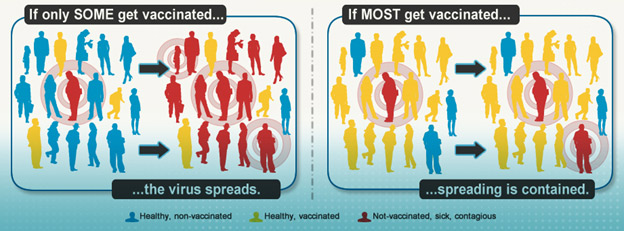What is an immunisation?
Immunisation is a simple and effective process for facilitating protect kids (and adults) against serious diseases. By immunising your child, you supply them the foremost effective begin to a healthy future, and you defend your community by reducing the unfold of sickness.

How the immunity system works?
Day by day your body comes across many alternative types of germs. variety of those can cause you to very sick. Your body options a natural weapons system said because the system, that helps fight germs which are able to cause serious sickness. one in every one of the ways that your body fights off germs is by making special antibodies that acknowledge what a selected germ sounds like, and may notice and destroy it. the first time your body meets a fresh germ, it'll take a minute for your body to create these antibodies. till those germs are destroyed, you may get sick. but shortly, if you encounter the same germ yet again, your body will bring it to mind and fight it off before you get sick.usually|this can be often why once you’ve had a sickness, you mostly don’t catch it yet again as a result of your body fights off the germ before you will get sick.

How immunisation helps?
Immunisation protects against diseases at intervals a similar methodology. It offers your system an application to run with a broken-up or weakened germ thus it won’t provide you with the illness. Your body learns the way to recognise those germs and is ready to fight them off before they will cause you to sick. you'll get a fever or a headache once you are given a vaccine. usually|this can be} often a typical response to the antigen and can pass quickly. If you’re upset at any time, speak alongside your doctor or nurse. Once you’ve been vaccinated, If you encounter the same germ yet again, your body will commit it to memory and fight the germ before you get sick. usually|this can be often but protection protects against sickness.

Immunity for society
There’s in an exceedingly completely different means that protection can facilitate defend our whānau, and that’s by guaranteeing that we tend to don’t even acquire contact with preventable diseases at intervals the first place. once solely some individuals are vaccinated, diseases will unfold terribly quickly. once a lot of individuals are vaccinated, diseases can’t unfold as quickly – however, are still ready to unfold. however once most of the people are vaccinated, the malady can’t unfold through our community so most of the people keep well. There are continually some individuals in each community United Nations agency are either too young to be vaccinated or have a weakened system, like cancer patients. These individuals will get terribly sick once they catch a malady, therefore everybody around them should be vaccinated. So, if enough individuals are vaccinated, the community as an entire are often protected. this can be known as community immunity.

Why it is important to get immunised in time?
In various countries, contagious disease outbreaks among teenagers and young adults, are still common as a result of several of them weren't vaccinated as young kids. Diseases like respiratory disease or contagious disease will unfold quickly. If most of the individuals in an exceeding community aren't vaccinated, these diseases will unfold quickly and result in an endemic. Community immunity will facilitate to stop this risk. once we prefer to immunise, we tend to not solely shield ourselves, we tend to shield our whānau and our whole community.
When to be immunised?
The National protection Schedule sets out the most effective time to urge vaccinated so your kid can be protected once they want it most. for instance, girls would like a lot of protection against respiratory illness while they're pregnant. Babies ought to be protected as young as potential against respiratory disease and alternative serious diseases. In most of the countries, the baby’s 1st immunisations are due at six weeks, three months and five months. Some vaccines are recommended at a rather older age. At age fifteen months, young kids get vaccinated against contagious disease and varicella, as well as boosters for a few of their earlier vaccines. Boosters are necessary as they inform your immune system’s memory to stay protected against harmful germs. It’s necessary to immunise on time. Delaying protection will place your kid at a bigger risk of catching a significant illness.

Safety of vaccines-
All vaccines employed in India are totally tested to make sure they're safe which they work well before they're approved, a method that may take a few years. Safety observance continues even once the vaccines are approved and being employed by variant individuals round the world.
That’s how we all know the benefits of immunisation so much outweigh any potential risk, and why protection is usually recommended by the Ministry of Health and health professionals. shield your whānau, immunise on time.

Nice
ReplyDeleteThank you 🙏
DeleteGreat Dude
Deletethank you gentleman.
Delete